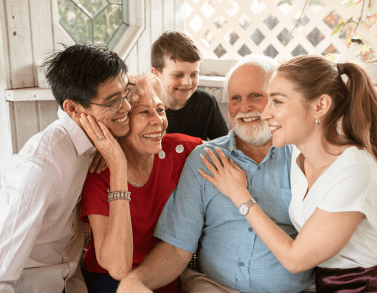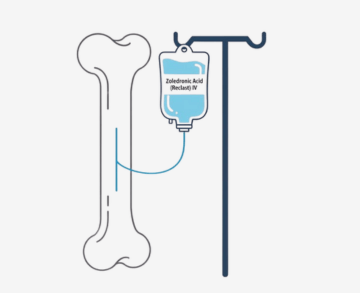Let’s Talk About How We Die
“You matter because you are you, and you matter to the end of your life. We will do all we can not only to help you die peacefully, but also to live until you die.” – Cicely Saunders
This quote from a pioneer in the hospice movement illustrates why palliative care is essential to end of life care. Most people fear dying in pain and hope for a peaceful death. With the resources available today, this is an achievable goal.
Many people don’t access palliative care or hospice until the last days of life, if at all. But hospice should be involved much earlier in the dying process, so they can assist a person in living as well as possible until the hour of death. Once enrolled in hospice, it is common for people to be admitted and die within a few days. We could have been working with these individuals for many months, ensuring they weren’t in pain, they had what they needed, and that their (and their family’s) psychosocial needs were being met.

Many clinicians have a hard time talking about the end of life. Our medical training is focused on trying to “fix” people and medical care and technology has done an incredible job in doing just that. In the 21stcentury, people are living much longer with complex medical issues. In the 1900’s a child had a life expectancy in their mid 40’s; a baby born today is expected to live until their mid-seventies. Despite this incredible advancement, we still face one truth: one day, whether we like it or not, we will take our last breath.
The question is, what will that last day look like for you? Will you be in the intensive care unit on a ventilator, tubes in multiple orifices and surrounded by medical personnel? Or would you prefer to be at home, surrounded by your loved ones, perhaps your best friend playing your favorite song on the piano? Both of these scenarios take place daily here in Santa Fe. The former predominates when people aren’t told that they are getting close to their time and that they should start getting their affairs in order. Although there are many reasons for this poor communication, we believe that when the healthcare system is so focused on fixing, they often lose sight of the fact that for many, continued care is futile and perhaps even harmful.
A difficult conversation between a patient and doctor should not end with “there is nothing else to do,” but rather, “we cannot offer you any curative treatment, so it is time to start thinking about the end and preparing yourself to die.” These are hard words for any physician to say, and the fact is that most physicians, even when inclined to candor, don’t have the time for these long and nuanced conversations.
The physicians at Santa Fe Mobile MD feel strongly that these conversations, while difficult, are crucial. We believe people deserve honest communication that identifies the reality of the situation and then explores best options for a given patient at a given time. When we sit with the family of a patient with cancer who has been told there are no more treatment options, we explain that with good medical care, they might live a few more weeks or even months, enjoying time with loved ones. We strive to set clear expectations and to be creative, allowing patients to live at home until the end with minimal pain and maximum dignity. Achieving that goal can be complex, but with years of experience and a passion for this work, we have been able to help hundreds of people live out their last few weeks or months comfortably at home.
We work closely with each of the hospice companies in the area, and one of the issues we observe is that they are often limited with staffing or bogged down by regulatory constraints, both of which can lead to sub-optimal care. In addition, most of the care provided by hospices is not performed directly by physicians who come to the home, but by nurses who are generally fantastic, but might not have the expertise of a physician with over 20 years of experience. It is exceedingly uncommon for a hospice physician to make house calls, something we consider fundamental to quality care and which we do daily.
The physicians at Santa Fe Mobile Md believe that, just as it is important to care for and celebrate a newborn baby at the beginning of their life, it is equally important to care for and celebrate people at the end of their life.
People often wait until it’s too late to start having end of life conversations. If and when you are diagnosed with a terminal condition, we encourage you to reach out and meet with one of our experienced physicians. Wherever you are in your journey, we are always here to help!




